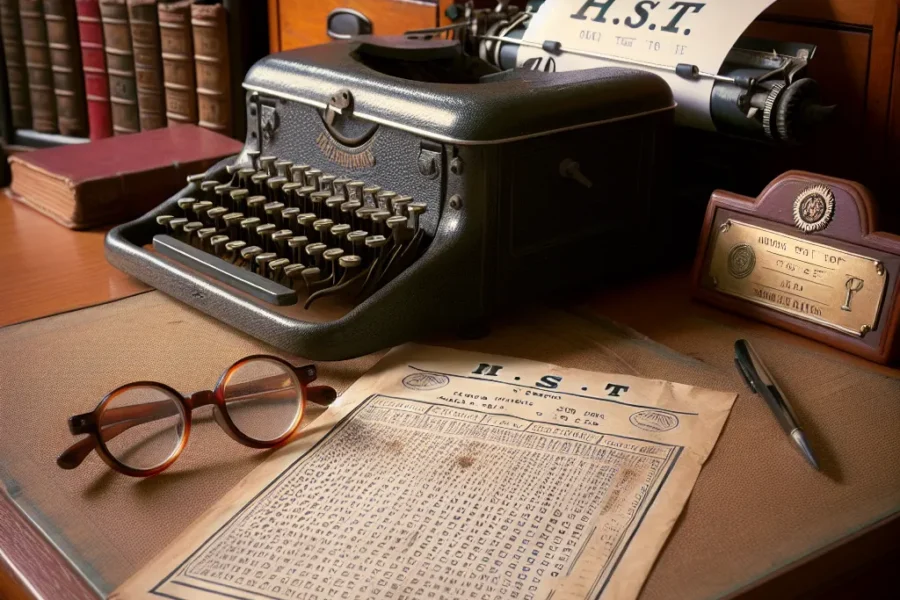Dwight D. Eisenhower, the 34th President of the United States, is remembered for many things: his crucial role as a general during World War II, his leadership during a transformative period in American history, and his ability to navigate the complexities of both domestic and international politics. Yet, one question that often piques the curiosity of historians and the general public alike is: What was Dwight D. Eisenhower’s IQ score?
If you are looking for legitimate IQ Tests which pass the entry bar for Mensa, see our IQ Tests.
Dwight D. Eisenhower’s life was marked by numerous achievements, but as with many historical figures, there’s often a curiosity about their intellectual capabilities. While there’s no concrete evidence documenting Eisenhower’s exact IQ score, we can certainly delve into the various dimensions of his intellect, his educational background, his problem-solving abilities, and his leadership qualities to provide a comprehensive picture of his mental acumen.
Eisenhower was born in 1890 in Denison, Texas, and grew up in Abilene, Kansas. From a young age, he was an avid student, particularly interested in history and military strategy. His educational journey took him to the prestigious West Point Military Academy, where he excelled academically and graduated in the upper half of his class. West Point is renowned for its rigorous admission standards and its demanding curriculum, which requires both intellectual and physical rigor. Eisenhower’s ability to thrive in such a challenging environment speaks to his intelligent and disciplined nature.
After graduating from West Point, Eisenhower continued his military career and attended the Command and General Staff College at Fort Leavenworth, Kansas. Here, he once again demonstrated his intellectual prowess, graduating first in his class of 245 officers. His performance at Fort Leavenworth solidified his reputation as a highly intelligent and capable officer. But how does this translate into an IQ score?
To better understand Eisenhower’s intellectual abilities, it’s important to consider what an IQ test measures. IQ tests are designed to assess a range of cognitive abilities, including logical reasoning, mathematical skills, language comprehension, and spatial awareness. They provide a snapshot of an individual’s problem-solving capabilities and intellectual potential. While Eisenhower may not have taken a formal IQ test, his educational and professional accomplishments suggest a high degree of intellectual acumen.
Eisenhower’s role in World War II further underscores his intellectual capabilities. He was appointed Supreme Commander of the Allied Expeditionary Forces in Europe—a position that required not only strategic brilliance but also exceptional leadership and diplomatic skills. Eisenhower was responsible for planning and executing Operation Overlord, the Allied invasion of Nazi-occupied Europe, which culminated in the D-Day landings on June 6, 1944. The success of Operation Overlord was a turning point in the war and a testament to Eisenhower’s strategic thinking, meticulous planning, and ability to coordinate complex operations involving multiple nations and millions of troops.
Leadership, in many ways, is a reflection of intelligence. It requires the ability to understand complex situations, foresee potential outcomes, make informed decisions, and inspire and manage people. Eisenhower’s leadership during World War II showcased his exceptional problem-solving skills, his capacity to remain calm under pressure, and his ability to navigate political and military complexities. These qualities are indicative of a highly intelligent individual.
Furthermore, Eisenhower’s presidency from 1953 to 1961 was marked by significant achievements and challenges. He navigated the complexities of the Cold War, promoted infrastructure development through the Interstate Highway System, and took steps towards desegregation in American schools. His approach to governance was characterized by pragmatism, strategic thinking, and a deep understanding of both domestic and international issues.
Another dimension to consider when assessing Eisenhower’s intellect is his written work. Eisenhower authored several books, including “Crusade in Europe,” a detailed account of World War II from his perspective as a military leader. The book not only provides historical insights but also reflects Eisenhower’s analytical mind and his ability to articulate complex ideas clearly and concisely. Writing requires a high degree of cognitive ability, encompassing language skills, critical thinking, and the ability to synthesize information.
Eisenhower’s reputation among his contemporaries further highlights his intellectual stature. Many of his peers respected him for his strategic mind, his ability to manage and resolve conflicts, and his capacity for innovative thinking. For instance, his development of the “Eisenhower Doctrine” demonstrated innovative thinking in foreign policy during the Cold War era. This doctrine aimed to provide American support to Middle Eastern countries resisting Communist aggression, showcasing his adeptness in geopolitical strategizing.
While direct measurement of Eisenhower’s IQ score remains elusive, it’s valuable to consider the broader context of his life and achievements. Traditional IQ tests might offer a numerical value, but true intelligence encompasses a range of qualities. Eisenhower demonstrated logical reasoning, problem-solving capabilities, strategic thinking, leadership, and a well-rounded knowledge base through his various roles as a military leader and president.
Interestingly, some anecdotal claims and historical musings place Eisenhower’s IQ around 122, which is generally considered to be above average, but these claims lack substantial evidence. Historians often caution against placing undue emphasis on such figures without reliable data. After all, IQ scores are just one way to measure intelligence, and they don’t capture the full spectrum of an individual’s intellectual capabilities.
Eisenhower’s legacy extends beyond mere numbers. His ability to lead a coalition of diverse Allied forces to victory in World War II, his farsightedness in infrastructure development, his strategic handling of the Cold War, and his advocacy for civil rights—all point to a leader with formidable mental faculties. Whether or not enumerated by an IQ score, Eisenhower’s intelligence was manifest in his multifaceted contributions to both military and civil spheres.
In conclusion, pinpointing Dwight D. Eisenhower’s exact IQ score may remain an intriguing but ultimately elusive task. However, examining his life, educational background, military career, presidency, and written works provides ample evidence of his significant intellectual capabilities. Eisenhower’s keen strategic mind, ability to solve complex problems, and effective leadership during pivotal moments in history underscore a remarkable intelligence that transcends numerical measurement. His legacy serves as a powerful reminder that true intellect encompasses more than just an IQ score—it manifests in actions, achievements, and the lasting impact one leaves on the world.



Leave a Comment